IN DEPTH
As colleges and universities continue post-COVID-19 pandemic adjustments, a new emphasis is being placed on services that support students. College administrators are finding that many positive support systems are already in place for on-campus residents.
Missouri State University, Evangel University and other higher education institutions across Missouri have invested millions of dollars into either building or renovating residence halls. The expansions offer students a bit more space, services or comforts.
Colleges have also put more effort into the lives being lived inside those dormitories, including counseling opportunities, peer groups organized by area of study and expanded activities.
Just don’t call them “dormitories” or “dorms” anymore.
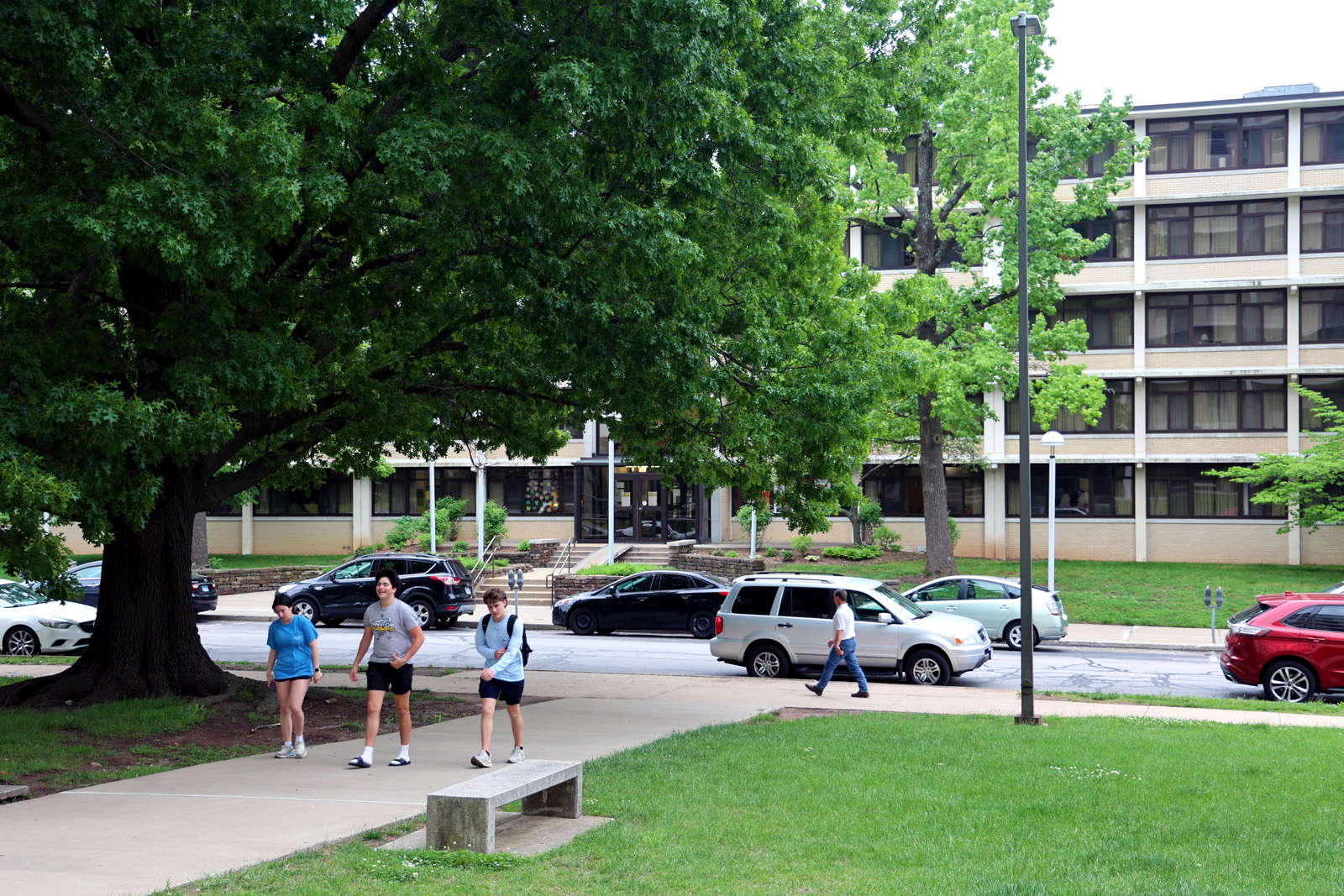
Dee Siscoe, vice president for student affairs at MSU, said the distinction is important, because the word “dorm” implies just a place to sleep. Siscoe and her team seek to create an environment that combines learning and living.
The reason for that is more than semantics — it is tied directly to student success, she said. From 1997 to 2022, students who live on campus outperform commuters in a variety of categories, including retention, grade point average and graduation.
“You can see that students who live on campus outperform students who don’t, every single year, regardless of whether they are a first-year student or a senior,” Siscoe said. “They have higher grade point averages, they are retained at higher rates and they graduate at higher rates.”
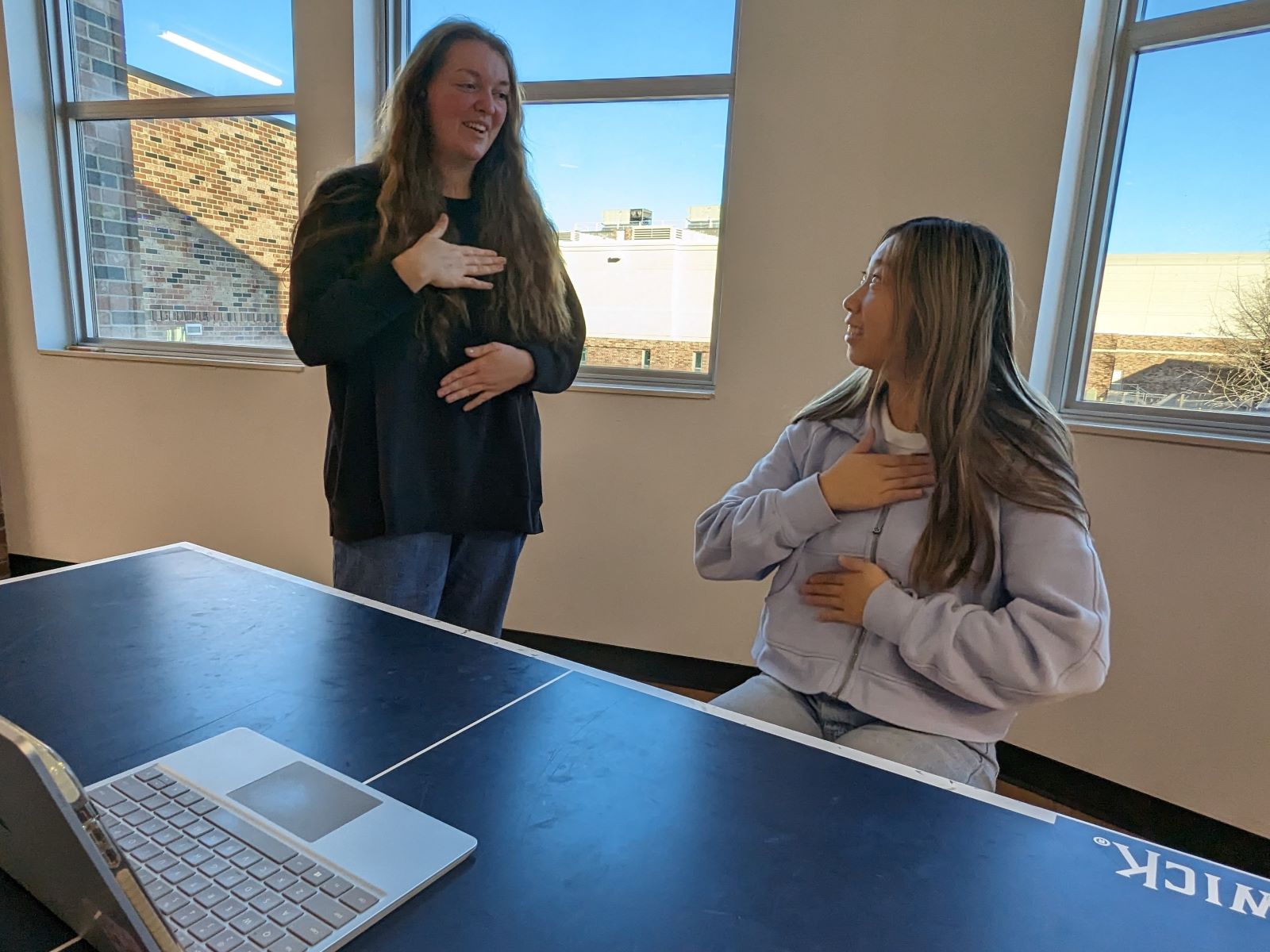
Another link that has emerged is the connection between student success and mental health. As the 2020 pandemic gets further in the rearview, and higher education works to increase enrollment numbers, they are looking to their residential living areas for ideas.
“We are recognizing the mental health benefits behind what we’ve done,” said Mark Entzminger, vice president for student development at Evangel University. “And in light of that recognition, we are enhancing or leaning into it more specifically.”
Better mental health leads to better academic performance
In the wake of the COVID-19 pandemic’s effect on academic performance, social-emotional learning found its way back into the spotlight for elementary and secondary education. A curriculum centered on addressing mental wellness, school climate, safety and healthy behaviors leads to improved performance, according to the Collaborative for Academic, Social and Emotional Learning.
Colleges and universities are just as invested in student success. It is a mutually beneficial relationship: Students pay tuition fees that benefit the entire institution, and diverse degree programs or missions help the schools earn more funding from the state governments.
Campus living has long been associated with a higher education. Many four-year universities make staying in a dor— er, residence hall — mandatory for freshmen.
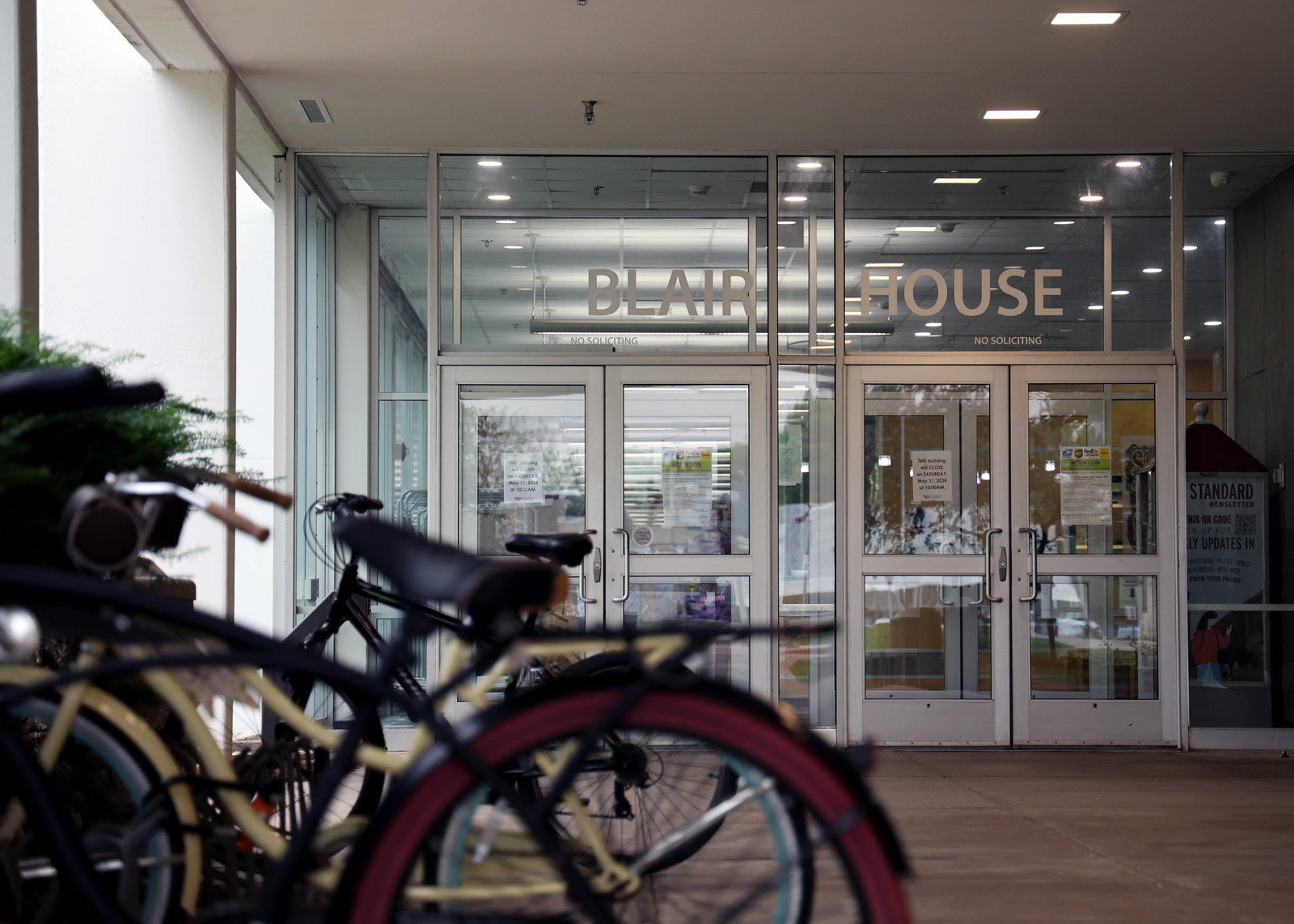
Both Missouri State and Evangel require freshmen to live on campus, although they may live with parents nearby in Springfield. Evangel goes a step further: Some scholarships require on-campus living during the freshman year regardless of how close to the college their parents live.
In a nutshell, living on campus introduces students to an entire community of people focused on the same general direction. While a student may have unique goals for carving out their direction or vision for their future, they are surrounded by people on similar journeys.
That goes a long way toward helping students earn their degrees.
“There is a community atmosphere, where students get connected to other students, and connected to the campus,” Siscoe said. “They have a greater sense of belonging and they get involved.”
Having students on campus helps schools deliver even more tools to help them. The services get much more convenient and efficient when their recipients are just a few buildings away, Entzminger said.
“When you’re residential, there are some things that you have as an advantage, and that’s just time and proximity,” Entzminger said. “You have more time with people on campus than otherwise.”
Every freshman’s first days are important
Entzminger said that Evangel puts a good deal of effort into making sure newly arriving freshmen get integrated quickly, because freshmen will make up their minds about their futures during the first few weeks — long before they have taken their first final exams.
Within the first five days on campus, freshmen at Evangel are placed into small groups of about 10 to 15 people, led by older male and female students, and tour all the experiences and amenities available to them, from the library to the rec center.
Every floor of a residence hall also has a peer mentor of some sort in addition to the R.A., giving each floor at least two people focused on getting to know students and being resources for them. They will offer to meet up with students about once a week, maybe for a meal or a walk.
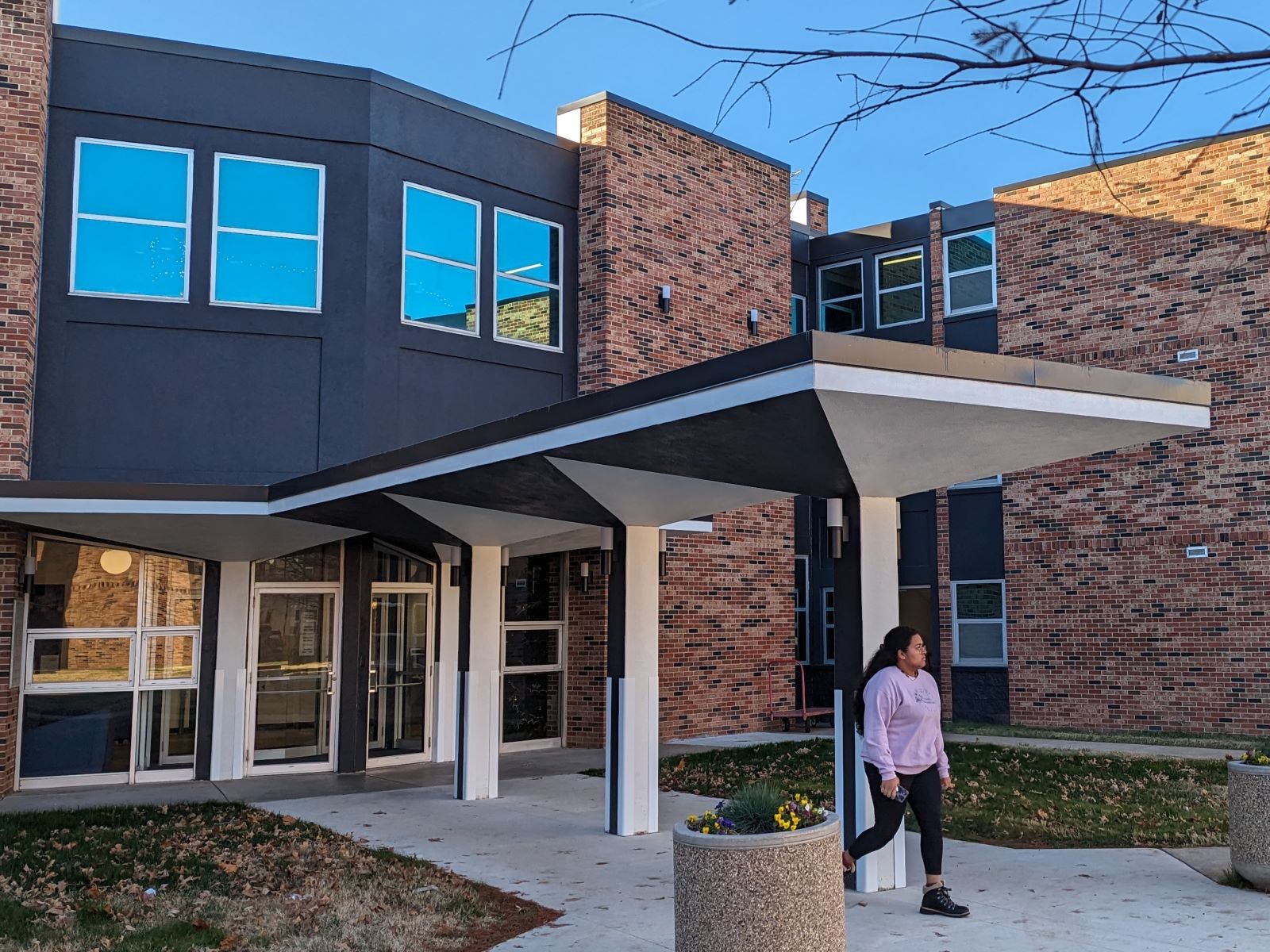
The attention makes it hard for students to feel invisible, Entzminger said. Students who say they need some space are given it, yet they remain seen.
“I don’t know the exact stats, but we find that it’s within the first three weeks, or maybe the first week, that students are already deciding whether or not this is the place for them,” Entzminger said. “Those first five days are essential to figuring out who they are, to help them feel connected to somebody, and for them to know that they matter. That’s probably the biggest thing we do to help set the trajectory of where they go.”
Missouri State University’s procedure is similar. Every student goes through its SOAR program — Student Orientation, Advisement and Registration — well before the first semester even begins, and whether they are living on campus or not.
Early on, the university does a door-to-door check to ensure students are finding the friends and supports they need. These “success chats” happen within the first couple of weeks. Both RAs and staff members ask students how things are going, answer questions and see if students have found ways to get involved.
“They are trying to figure out if a student needs any kind of support, or where they are struggling, and how we can make those connections for them,” Siscoe said. “Those things can be really valuable to a student. Somebody cares enough to sit down and ask them those questions.”
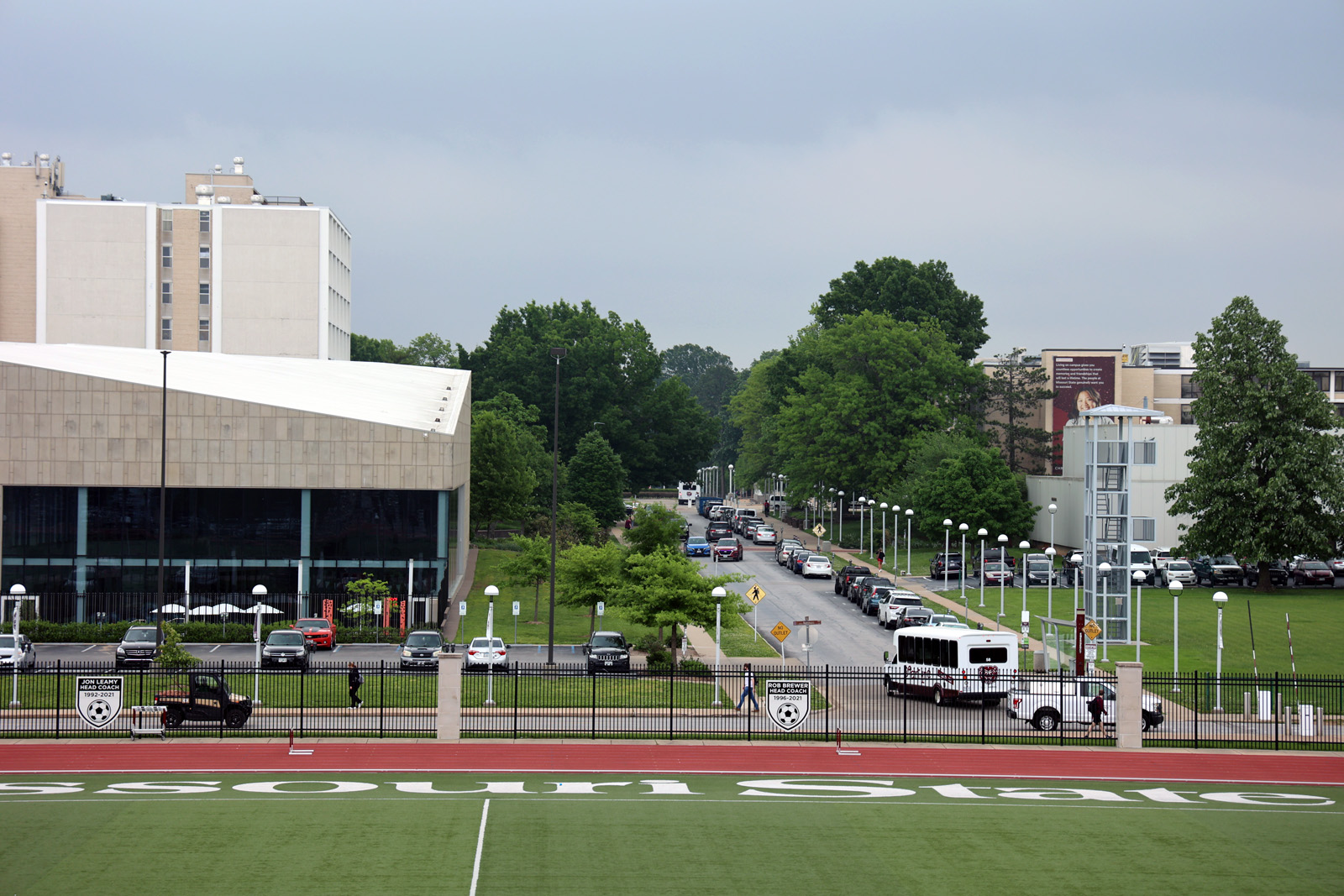
Siscoe said the connection between student success and living on-campus has been well established for decades. Residence halls’ RAs and professional, full-time live-in hall directors help ensure that students can bond and get involved.
But the COVID-19 pandemic — specifically a shift from residential campus life to remote learning for coursework — affected students’ ability to connect.
“Many of the students who were in high school during those years, we are seeing that they are struggling with interpersonal connections,” Siscoe said. “...with finding ways to get involved because they didn’t have those experiences in high school. That has caused us to give more intentional thought into how we ensure students know how to get connected.”
Fighting loneliness on college campuses
It is possible for people who are surrounded by others to still feel completely alone.
On-campus living also helps address a student’s loneliness. Entzminger said that being a student is a stressful experience, and dealing with that stress alone can be difficult.
A survey conducted by Missouri Partners in Prevention revealed that students surveyed at 20 different colleges and universities in Missouri cope with stress by:
- Laughing or smiling a lot.
- Religious or spiritual practices.
- Talking with family or friends.
- Exercising.
- Playing video games or listening to music.
Doing all those activities with friends is much easier in an on-campus setting, Entzminger said. For example: There are plenty of TV rooms for students, and there is never just one person watching a show, Entzminger said.
“The student life, the connectivity of living on campus, is a great attribute for relieving stress,” Entzminger said. “If they were living alone, they likely would not have those same outlets to cope with stress in that way.

A survey of exiting students produced reasons why they either transferred or stopped their education completely. Among the top five: Financial concerns, mental health concerns, lack of belonging, academic struggles and lack of friends.
“Two of those are related to being alone,” Entzminger said. “If we can solve those, we can help students avoid a disruption to their educational journey and, as a result, probably thrive better in life afterwards.”
While bonding is important, Siscoe said MSU is finding more students grow interested in additional privacy as their education progresses. The university offers single rooms in residence halls for returning students willing to pay a bit more than their counterparts in double rooms.
“We have converted some rooms in Freddy and Wells into singles,” Siscoe said. “An upperclassmen student can still live on campus and get all the benefits of on-campus living, but also have a little bit more privacy.”
Siscoe said Missouri State is also working on bolstering its Living-Learning Communities, groups of students arranged by either a career path or common interest. Academic communities have been formed for agriculture, educators, business majors, health care interests and STEM fields. Themed groups cover everything from people interested in the arts to those interested in worldwide connections.
While the program was formed before COVID-19, Siscoe said the university is working to expand those options. Activities in Living-Learning Communities can be tailored to give students more access into their chosen interest, Siscoe said.
Extending the benefits off campus
While a lot of work goes into helping on-campus students succeed, the fact remains that only a fraction of students actually live on a typical college campus.
Of Missouri State’s about 24,000 students, about 3,500 students were living in the university’s residence halls and apartments, Siscoe said.
Terry Weber, director of MSU’s Plaster Student Union, said the university works hard at making sure all of its students feel like they are Bears — especially its commuter students.
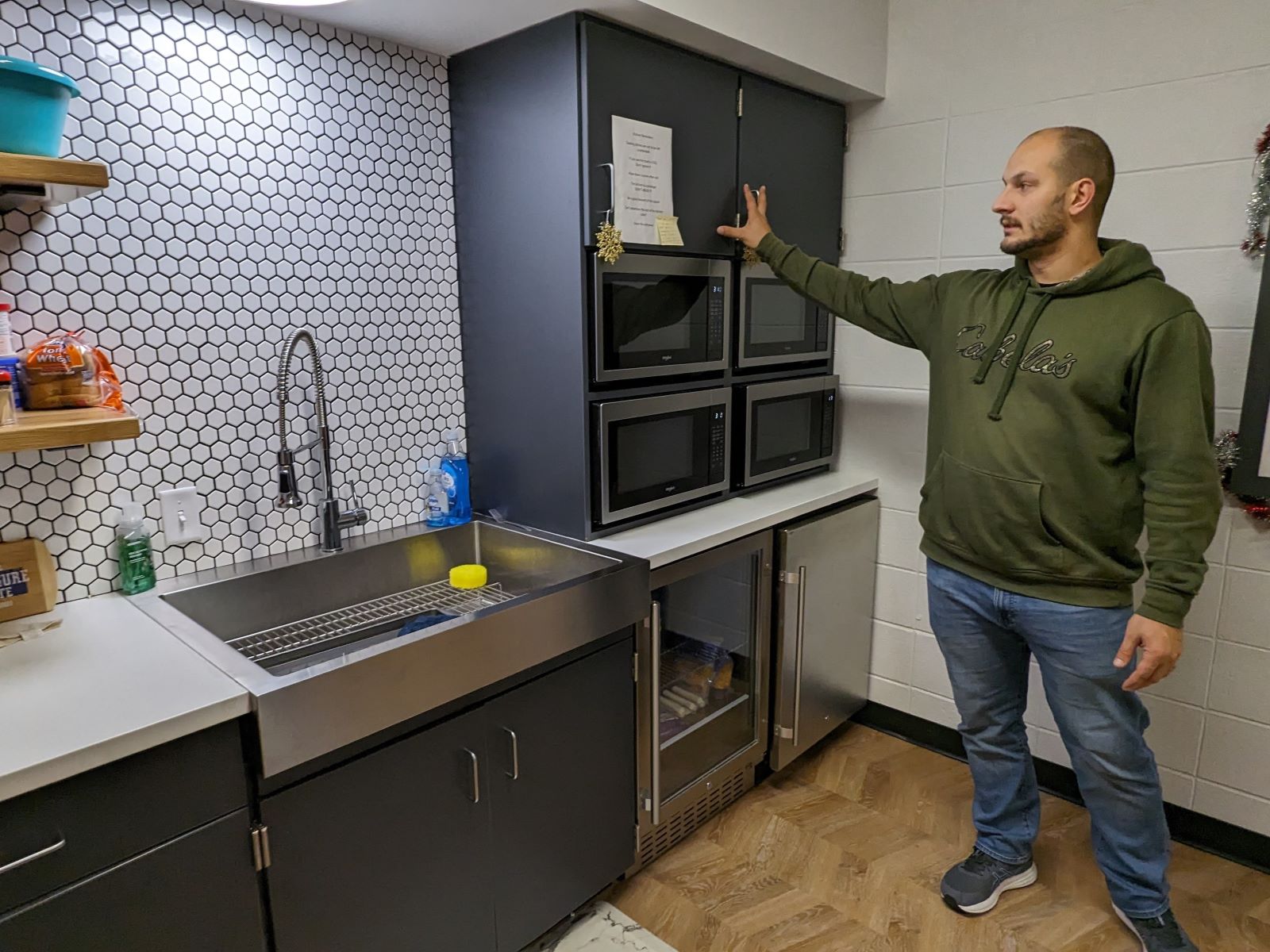
Just don’t call them “commuter students” anymore — to their faces, according to surveys.
“What we have found working with commuter students is that they don’t want to be identified as commuter students,” Weber said. “They don’t think of themselves necessarily as commuter students.”
Weber said the university has “a massive spectrum” of students who live off campus. One student may live in Bear Village, an independently-owned resort-style apartment complex on the west side of Kimbrough Street, while another may drive daily from Bolivar or Branson to attend classes. Weber mentioned that one of his student employees is a fully online student, yet makes the drive to work on campus in person.
When looking at residence hall living, Weber draws inspiration from the word “living” to bolster services for all students. With help from the Student Government Association, a commuter corner was opened in March on the main floor of the union. The area offers some easily accessible necessities such as storage lockers, study pods, tables, a microwave and a printer.
Commuter students told the SGA that they wished the university offered such a designated space where they could spend time without having to hunt for parking spots more than once a day.
“If you have a class at 8 a.m. and then you don’t have a class until 3 p.m., what are you going to do between that time span?” said Spencer Vreeland, student body president, in an interview with The Standard News. “We ran with that (idea) and wanted to bring it to life.”
Missouri State also offers fitness and recreation centers, health services and more to students without a requirement to live on campus. Weber said every year begins with a commuter ice cream social.
No dorms? No problem
Philosophies of on-campus living are in action at a college that doesn’t offer a single residence hall.
Ozarks Technical Community College has put a great deal of work into creating a collegiate atmosphere on its Springfield campus. Walkways offer plenty of benches and tables for gathering, and even a fire pit. Classroom buildings offer space for studying or relaxing. A schedule of events offers entertainment including crafts, movies and concerts.
The college’s blue colors and eagle mascot are displayed everywhere on campus. That’s not a typo: OTC has a mascot, even though it doesn’t have any athletic teams. Like Bears at MSU and Panthers at Drury, OTC students are Eagles.
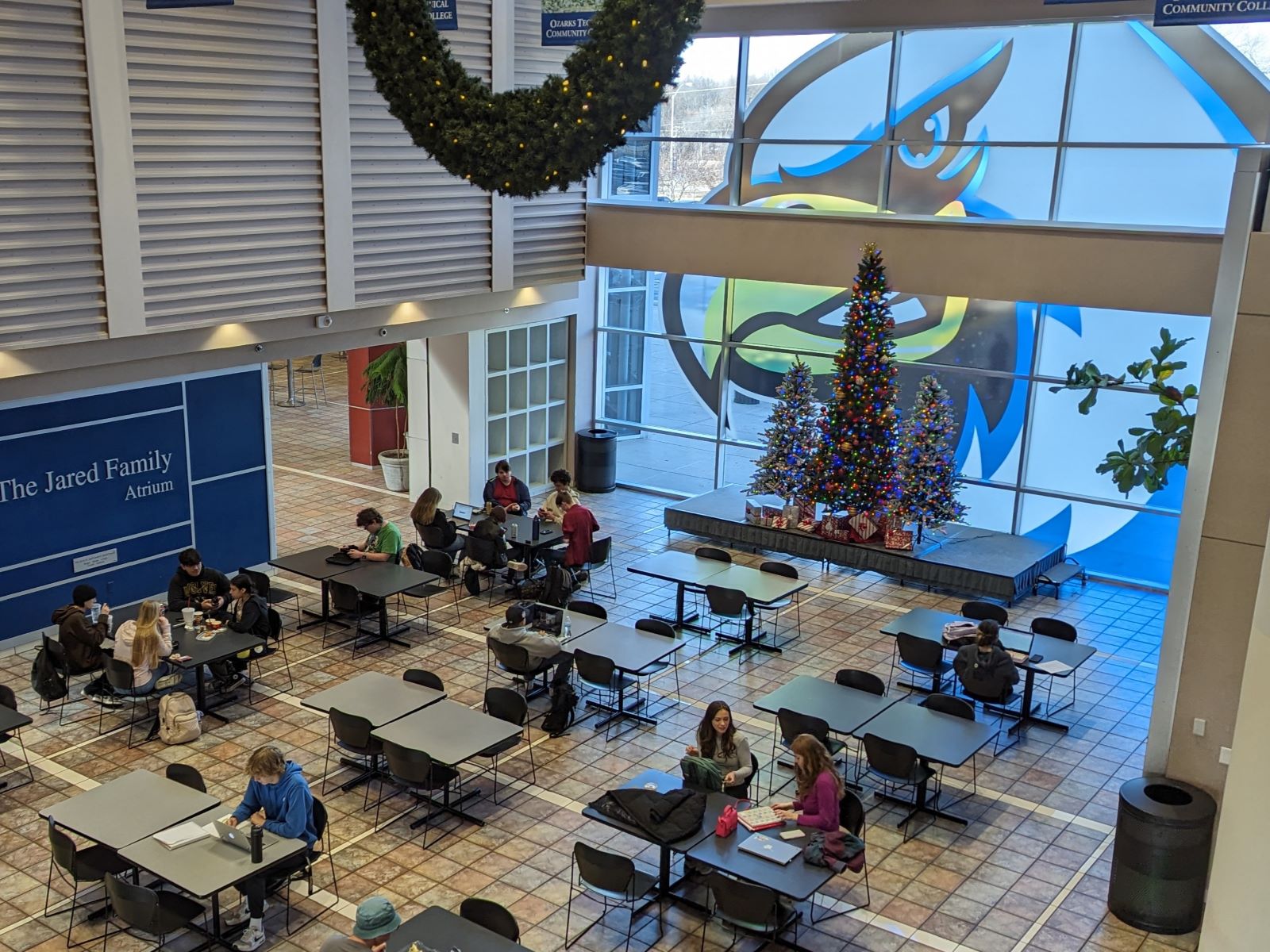
Amy Bacon, chief of staff at OTC, said that the inspiration is deliberate, and that it reflects a change in its student body over the last decade.
“The average age of our students continues to tumble down,” Bacon said. “Our average age right now is 19 years old. And this is true for community colleges across America, which are becoming more of a destination for students, not just a place someone would go to retrain during a recession.”
OTC has a number of structures in place geared toward student success that mirror what other universities do. While it has no plans to build residence halls, Bacon said the college works toward making its Springfield campus a singular location where students can solve their needs in one place.
In 2022, OTC introduced its My College Navigator program. A full-time employee acts as an advisor who helps students register and plan for degrees. Bacon said navigators also help students find resources they need to address problems.
The college also offers a variety of health and counseling services for students, and also works to build partnerships that can address shortfalls such as food insecurity, or a student dealing with an abusive situation at home.
While students’ average age is going down at OTC, the problems that might keep them from succeeding in class can be very adult. Navigators and instructors can work together checking on students who miss classes, for instance.
The navigators are helping the college better know its students, Bacon said. And students are appreciating that extra effort.
“We are learning more about our students than we have ever known before, because they are sharing interests and relationships with us,” Bacon said. “Maybe they say they need someone to talk to because of a food insecurity issue, or a domestic violence situation at home. That’s when our team kicks in and shows them direct care, making referrals or getting them to community resources.”






